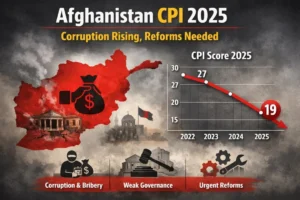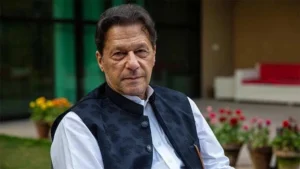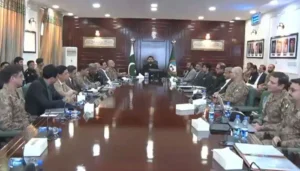On July 11, 2025, Pak Asia Youth Forum hosted an engaging SpaceX session titled “From Doha to Disorder: Is It Time for a Pakistan-Afghanistan Reset?” The discussion, moderated by Laiba Arshad, featured two speakers: Muhammad Israr Madni from Pakistan and Mr. Mirwais Yousifzai from Afghanistan. However, due to internet issues in Afghanistan, Mr. Yousifzai joined the session but could not speak. Muhammad Israr Madni shared his perspectives on the Doha Agreement, discussing Afghanistan’s improved security while warning of ISKP and TTP threats that still strain ties with Pakistan. He urged regional cooperation and deeper engagement through economic and humanitarian initiatives.
Highlights from Muhammad Israr Madni
Muhammad Israr Madni shared perspectives and key insights on Pakistan-Afghanistan relations, emphasizing that certain elements under the Taliban remain a challenge. Key points from his discussion are as follows:
Improved Security Situation and Taliban Control:
He noted that the security situation in Afghanistan has improved significantly compared to previous periods, although the Taliban maintains control. While many challenges remain, the reduction in large-scale violence under Taliban rule has created a relatively more stable environment. However, this stability is fragile, as it exists alongside complex threats from other groups like ISKP and TTP.
Threat from Islamic State Khorasan Province (ISKP):
Currently, the Islamic State Khorasan Province (ISKP) poses a threat not only to the Taliban but also to global security. ISKP is emerging as a significant threat, and Pakistan views it as a danger. ISKP has targeted Afghan scholars formerly associated with the current Afghan regime. The Afghan Taliban are positioning themselves as partners in the fight against ISKP.
Tehrik-i-Taliban Pakistan (TTP) Issue and Challenges:
Pakistan believes that the Doha Agreement has not been implemented due to ongoing attacks by the Tehrik-i-Taliban Pakistan (TTP) from Afghan territory. The TTP issue was not significant under previous regimes, but it has now negatively impacted Pakistan-Afghanistan relations. In response to a question, he explained that Afghanistan cannot address the TTP issue in the same manner as it handles other groups for several reasons: they share language and ethnicity, have similar ideologies, originate from the same region, have extensive personal interactions, and fought alongside each other against NATO.
Need for Mediation and Regional Approach:
He highlighted the absence of a mediating body between Afghanistan and the United States regarding the Doha Agreement and suggested forming a regional group to address this issue if there is no international action.
Afghan Refugees and Public Perception in Pakistan:
Following the establishment of the Taliban regime, a large number of refugees have sought refuge in Pakistan. While many countries closed their borders to Afghans, Pakistan accepted them, earning international appreciation. He discussed the misrepresentation by civil society and the Pashtun belt regarding calls to expel Afghan refugees from Pakistan.
Increasing Engagement, Economic Integration, and Regional Dynamics:
He emphasized that increasing engagement with Afghanistan would help resolve issues. Pakistan has shown flexibility and enhanced engagement, as evidenced by ongoing trade. Engagement between Pakistan and Afghanistan is steadily increasing. Pakistan has included Afghanistan in the China-Pakistan Economic Corridor (CPEC), and the railway project connecting Pakistan, Afghanistan, and Turkmenistan is in progress.
Following Operation Banyan ul Marsoos, the political landscape of South Asia has changed significantly, with Pakistan receiving increased recognition. China has taken on a more prominent role compared to the United States.
Socioeconomic Measures and Counterterrorism Approach:
He stated that when people have access to resources, they are less likely to turn to terrorism. Pakistan is providing health facilities to the Afghan people. He emphasized that providing such support can strengthen stability, reduce extremist tendencies, and improve relations between both countries.
KEY TAKEAWAYS:
Afghanistan’s security has improved under Taliban control, but remains fragile due to ISKP and TTP threats. Pakistan stresses regional cooperation and stronger economic ties to address these challenges. Hosting Afghan refugees and providing resources are key to reducing extremism and building better relations.
The session ended with Mr. Salman Javed, Director General of the Pak Asia Youth Forum (PAYF), delivering the closing remarks and thanking the speakers for their valuable insights.






